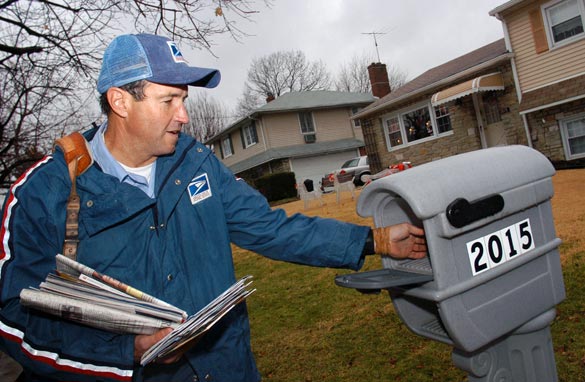
Neither snow nor rain nor heat nor gloom of night stays these couriers from the swift completion of their appointed rounds…unless it’s Saturday.
Last week the USPS – which has been struggling financially over the past several years, due in large part to email and privatized shipping – made international headlines after announcing it was cutting the cord on Saturday mail delivery and transitioning into a five-day delivery schedule. This is huge news for the independent agency, which posted a $1.3 billion loss in the first quarter of 2013.
The USPS, which receives no government subsides or taxpayer support, has estimated that without the aid of Congress, it will be $45 billion in debt by 2017. A large portion of the debt is attributed to the government mandated $5.5 billion the postal service must set aside to pay for future employee health insurance. This week Postmaster General Patrick Donahoe urged Congress to allow the organization to manage its own retirement benefits, explaining that it would save the postal service $20 billion over the next three years. In addition, the ending of Saturday delivery would save the company $2 billion annually. Donahoe said in his testimony this week:
“To preserve our mission to provide secure, reliable and affordable universal delivery service — and do so without burdening the American taxpayer — the Postal Service needs urgent reform to its business model.”
Despite its recent financial decline, the United States Postal Service has been a key part in the advancement and success of America, dating as far back as 1639. In that year, the General Court of Massachusetts appointed Bostonian Richard Fairbanks’ tavern as the point of entry and delivery for all mail correspondence to and from England. In 1775 Benjamin Franklin became the nation’s first Postmaster General.
At the moment lawmakers are gridlocked on what actions to take in this ongoing issue, but are expected to make preliminary decisions in the coming weeks.
(Photo credit: Govloop)
Think people should hear about this?